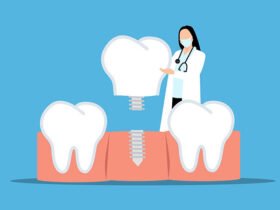Efficient information management is essential to the functioning of any healthcare system. As patient demands grow and the industry evolves with technology, the importance of organized data management becomes increasingly evident.
Improving healthcare efficiency means more than reducing wait times or streamlining treatment; it requires a holistic approach to managing information effectively.
Properly handled, healthcare data improves patient care, reduces costs, and enables healthcare professionals to make informed decisions promptly.
The Need for Better Information Management in Healthcare
Healthcare systems globally face many challenges, from data overload to outdated systems. With patient data generated every minute, hospitals and healthcare providers must prioritize information accuracy and availability.
Proper information management contributes to faster diagnoses, coordinated care, and better patient outcomes. Moreover, when data is managed efficiently, the risk of errors decreases, making healthcare safer and more reliable.
Technological advancements in healthcare have led to the digitization of records, shifting from paper-based systems to electronic health records (EHRs). Although EHRs offer numerous benefits, they require well-established practices to be genuinely effective.
This includes the organization, storage, and retrieval of data, all of which need to be streamlined to avoid duplication and confusion.
The solution lies in developing professionals skilled in both health and information management. For those seeking to advance their knowledge and skills in this area, pursuing a master of health information management equips individuals with the expertise needed to oversee information systems, optimize data use, and contribute to healthcare efficiency.
Technology’s Role in Transforming Healthcare Information Systems
Technology has revolutionized the way healthcare data is collected, stored, and shared. As healthcare organizations adopt more advanced tools, such as cloud computing, artificial intelligence (AI), and data analytics, the potential to improve patient outcomes is vast.
Technology helps in managing large volumes of data and also enables the extraction of insights that can drive better clinical and administrative decisions.
AI is increasingly being utilized to enhance information management. For example, machine learning algorithms can analyze vast amounts of health data, identifying patterns and trends that would take human analysts much longer to discover.
AI tools can also help streamline administrative tasks, from scheduling to billing, reducing time and errors.
Meanwhile, cloud computing allows healthcare professionals to access information securely and efficiently from different locations. This accessibility improves communication among healthcare teams, especially when working with patients who require interdisciplinary care.
Additionally, the cloud provides scalable storage solutions, allowing organizations to store patient data without being constrained by physical storage limitations.
However, as healthcare becomes more digitized, the need for cybersecurity measures grows. Patient data is sensitive and must be protected from breaches and unauthorized access. Hence, healthcare professionals must be aware of how to implement secure information management systems that comply with privacy regulations like the Health Insurance Portability and Accountability Act (HIPAA).
Improving Data Sharing and Communication
Interoperability—the ability of different systems and devices to exchange and interpret data—is crucial to efficient information management. Poor interoperability has been a significant barrier to sharing health information across various platforms and institutions, often leading to delays and miscommunication in patient care.
To improve this, healthcare providers are turning to standardized data formats and protocols, which allow seamless data sharing across systems.
For instance, when patients move from one healthcare facility to another, their medical histories, test results, and treatment plans must be shared quickly to prevent unnecessary repetition of tests and treatments. This efficient data transfer enhances continuity of care and reduces wait times, directly benefiting the patient experience.
In emergencies, access to a patient’s medical history and allergies can be lifesaving.
The Impact of Efficient Information Management on Patient Outcomes
One of the primary goals of better information management is to improve patient outcomes. Patients benefit significantly when healthcare providers can access complete, up-to-date information, enabling accurate diagnoses and appropriate treatments. The use of real-time data allows for early intervention, which can prevent complications and reduce hospital stays.
An example of efficient information management’s impact on patient care can be seen in chronic disease management. Patients with conditions like diabetes or heart disease require ongoing monitoring and coordinated care. When data is efficiently managed, healthcare teams can track patient progress, identify potential issues early, and adjust treatment plans accordingly.
Patient engagement is also positively affected by efficient information management. With access to their health records through patient portals, individuals can actively participate in their care, monitor their health metrics, and communicate with their healthcare providers easily. This empowers patients and helps them adhere to their treatment plans, leading to better health outcomes.
Reducing Costs and Increasing Efficiency Through Information Management
Healthcare organizations aim to deliver high-quality care while managing costs effectively. Better information management plays a critical role in achieving this balance. By reducing paperwork, eliminating duplication of services, and improving billing accuracy, healthcare providers can significantly lower operational costs.
Additionally, streamlined processes reduce staff burnout, improve workflow efficiency, and enhance overall productivity.
Healthcare data analytics is another area contributing to cost reduction. By analyzing data trends, healthcare organizations can make informed decisions about resource allocation, identify areas needing improvement, and forecast future healthcare demands.
Predictive analytics, for example, can be used to predict patient admission rates, enabling better staff and resource management. By being proactive rather than reactive, healthcare providers can save time and resources, ultimately reducing costs.
The Future of Healthcare Information Management
The future of healthcare information management lies in harnessing emerging technologies and strategies to make data more accessible, secure, and actionable. With advancements in AI, machine learning, and cloud technology, information management will continue to evolve, focusing on personalized care and preventive measures.
Patients will increasingly become partners in their health journey, accessing their health data conveniently and engaging more deeply with their healthcare providers.
To meet the demands of this evolving landscape, healthcare professionals must develop a robust understanding of health information management. Proper training and advanced education provide the necessary foundation to navigate the complexities of data systems, cybersecurity, and regulatory compliance.
Embracing a data-driven approach and fostering a culture of continuous improvement will be key to achieving efficiency in healthcare information management.
All in all, improving healthcare efficiency through better information management is crucial to delivering high-quality care, reducing costs, and enhancing patient outcomes.
The field of health information management continues to evolve, with technological innovations paving the way for more efficient, secure, and accurate handling of healthcare data.
By focusing on organized data management and leveraging technology, healthcare organizations can improve their operations and the overall patient experience.










